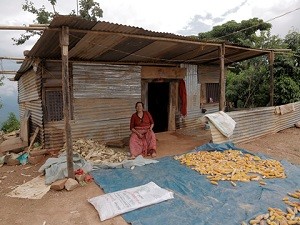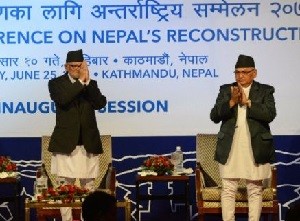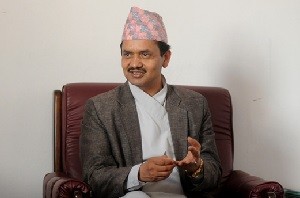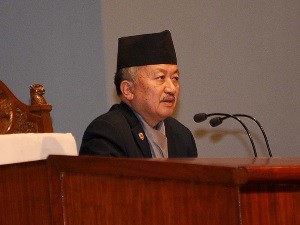
USD 4,4 billion was officially available to the NRA by late June: another family waiting for money to rebuild

“We are in the process of establishing the reconstruction authority.” Finance Minister, Mahat, explaining the delay
What was this dispute about, more specifically? Well, NC leaders wanted certain bureaucrats at the helm of the NRA, while UML insisted on filling the positions with party leaders and even MPs (Members of Parliament) who would be more “accountable” to the people and know the “local needs”. Above all, UML leaders were not happy with NC’s choice of candidate for Chief Executive Officer (CEO) of the NRA. NC wanted to appoint vice-chairman of the National Planning Commission, Govinda Raj Pokhrel, a known NC sympathizer, while UML wished to appoint a different candidate!
On August 13, this dispute was temporarily put to rest and the NRA was created in practice. Who, then, was appointed to head and manage this high-level agency tasked with handling over USD 4 billion? Well, the Prime Minister was named the political head, while the vice chairman of the National Planning Commission, Govinda Raj Pokhrel, was indeed selected as CEO. Then came four ordinary members, all of them ministers, including the Minister of Finance, Minister for Home Affairs, Minister for Urban Development, and Minister for Civil Aviation and Culture. Add to that a number of technical experts, and the National Reconstruction Authority finally seemed ready to take off! The life of the agency, however, should turn out unexpectedly short. Reason? A technicality! The ordinance authorizing the NRA to function had to be ratified in parliament no later than August 31. Otherwise, the NRA would have to be dissolved and its very revival depend on a bill of legislation. Some interests were in favour of this outcome – and so, here’s what happened. In mid-August, parliament went for recess, and Speaker, Subash Chandra Nembang (UML), known for his political cunning, decided to re-adjourn the House only on September 1 – which was one day too late to ratify the ordinance!
Cunning or forgetfulness? Leaders missed the deadline to renew the NRA mandate in parliament on August 31
What about now?! Well, fast forward to December. It took over three months of further discussion among party leaders before the bill to revive the NRA was finally tabled and passed in parliament. On December 16, the House passed the bill, even with a large margin. The Madhesi parties walked out of the hall, demanding that a bill on amendment of the new constitution be debated first. But otherwise, everybody was in favour. So, with such legislative support for the NRA, was the road now clear? Not entirely. One stumbling block again remained before the NRA could start: whom to select as CEO?
Whom to select as CEO – the person to manage the USD 4,4 billion donor money – was undecided for nearly two weeks. NC and UML immediately agreed on the main selection criterion, namely that it must a “non-political figure”: someone equipped with sufficient experience and skills but not with a party badge of any colour. The UCPN-Maoists shared this principle too. Party spokesperson, Dinanath Sharma, made his party’s stance clear: “Let it be a capable person, but not a party cadre.” But one thing is principles, another whether they could find such a candidate in practice. In the end, they could!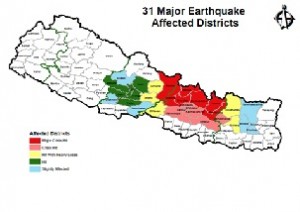
Sushil Gyawali, CEO of the NRA – finally revived in December – pledges immediate relief to the affected districts
Earthquake relief and reconstruction work is already tainted by favouritism and misuse of funds. Time will show whether the NRA will start its work quickly and indeed turn a different page in the way relief and reconstruction funds are managed. The political bickering over the appointment of CEO – delaying the start-up of the NRA for more than six months! – is not reassuring, as it suggests that strong political interests are at stake that could also interfere later on. For the sake of the millions of earthquake victims waiting for help, we hope they won’t.

